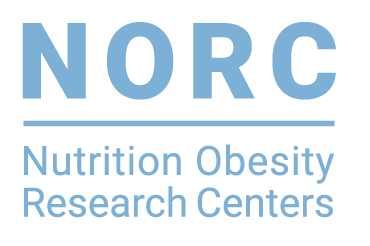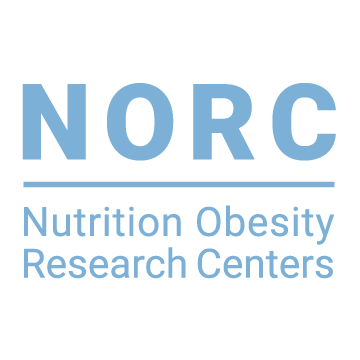Category: Featured News
UNC-CH NORC April 2020 Newsletter
UNC-CH NORC April 2020 Newsletter
Categories: Featured News, News, Newsletters, Uncategorized Tags: University of North Carolina at Chapel HillUNC-CH NORC January 2020 Newsletter
UNC-CH NORC January 2020 Newsletter
Categories: Featured News, News, Newsletters Tags: University of North Carolina at Chapel HillThe muscle anabolic effect of protein ingestion during a hyperinsulinaemic euglycaemic clamp in middle‐aged women is not caused by leucine alone
Abstract It has been suggested that leucine is primarily responsible for the increase in muscle protein synthesis (MPS) after protein ingestion because leucine uniquely activates the mTOR‐p70S6K signalling cascade. We tested this hypothesis by measuring muscle p‐mTORSer2448, p‐p70S6KThr389 and p‐eIF2αSer51, as well as protein turnover (by stable isotope labelled amino acid tracer infusion in conjunction with leg arteriovenous blood and muscle tissue sampling), in 28 women who consumed either 0.45 g protein kg−1 fat‐free mass (containing 0.0513 g leucine kg−1 fat‐free mass) or a control drink (n = 14) or 0.0513 g leucine kg−1 fat‐free mass or a control drink (n = 14) during a hyperinsulinaemic‐euglycaemic clamp procedure … Read More »
Categories: Featured News, News, Publications Tags: Washington University St. LouisEffect of Progressive Weight Loss on Lactate Metabolism: a Randomized Controlled Trial
Abstract Objective Lactate is an intermediate of glucose metabolism that has been implicated in the pathogenesis of insulin resistance. This study evaluated the relationship between glucose kinetics and plasma lactate concentration ([LAC]) before and after manipulating insulin sensitivity by progressive weight loss. Methods Forty people with obesity (BMI=37.9±4.3 kg/m2) were randomized to weight maintenance (n=14) or weight loss (n=19). Subjects were studied before and after 6 months of weight maintenance and before and after 5%, 11% and 16% weight loss. A hyperinsulinemic-euglycemic clamp procedure in conjunction with [6,6-2H2]glucose tracer infusion was used to assess glucose kinetics. Results At baseline, fasting … Read More »
Categories: Featured News, News, Publications Tags: Washington University St. LouisDiurnal Variation in PDK4 Expression Is Associated With Plasma Free Fatty Acid Availability in People
Abstract Context Many biological pathways involved in regulating substrate metabolism display rhythmic oscillation patterns. In rodents, clock genes regulate circadian rhythms of metabolic genes and substrate metabolism. However, the interrelationships among substrate metabolism, metabolic genes, and clock genes have not been fully explored in people. Objective We tested the hypothesis that the diurnal expression pattern of pyruvate dehydrogenase kinase 4 (PDK4), a key metabolic enzyme involved in fuel switching between glucose and free fatty acids (FFAs), is associated with plasma FFA concentration and clock genes. Design and Methods We analyzed peripheral blood mononuclear cells (PBMCs), subcutaneous adipose tissue, and plasma … Read More »
Categories: Featured News, News, Publications Tags: Washington University St. LouisEndogenous Oxytocin Levels in Relation to Food Intake, Menstrual Phase, and Age in Females
Summary: Though oxytocin is most commonly known for its role in uterine contraction during delivery, recent evidence demonstrates that it also has an anorexigenic effect. Elizabeth Lawson and colleagues investigated the endogenous oxytocin response to food intake and its relationship to sensations of hunger and satiety in 55 normal weight, pre-menopausal females. Oxytocin levels were higher in younger women and were lower in the early-mid follicular phase of the menstrual cycle. Oxytocin levels decreased significantly during the first hour following a standardized meal, with a mean 20% reduction in levels compared to baseline. Fasting levels of oxytocin were not associated … Read More »
Categories: Blogs, Featured News, News, Newsletters, Publications Tags: Harvard Medical SchoolLongitudinal 5-year evaluation of bone density and microarchitecture after Roux-en-Y gastric bypass surgery.
Summary: Previous work has suggested a deleterious short-term effect of Roux-en-Y Gastric Bypass (RYGB) on bone mineral density (BMD), but the long-term effects of RYGB on bone health are not well understood. To investigate this question, NORCH member Dr. Elaine Yu and colleagues prospectively followed serum bone markers and bone density in 21 adults who received RYGB. Bone density was assessed using serial dual-energy X-ray absorptiometry (DXA), quantitative computed tomography (QCT), and high resolution peripheral QCT (HR-pQCT) scanning. Bone turnover markers type I collage C-terminal telopeptide (CTX) and procollagen type I N-terminal propeptide (P1NP) were elevated 2 years after surgery … Read More »
Categories: Blogs, Featured News, Publications Tags: Harvard Medical SchoolTime-Dependent Molecular Responses Differ between Gastric Bypass and Dieting but Are Conserved Across Species.
Summary: Roux-en-Y Gastric Bypass surgery (RYGB) has metabolic effects that may be independent of the weight loss achieved following the procedure. To better characterize these effects, NORCH member Nicholas Stylopoulos, MD, and colleagues addressed the metabolic differences between weight loss achieved by RYGB vs. weight loss achieved by dieting, investigating tissue-specific molecular changes in each condition in a murine model and also comparing molecular signatures of each condition in murine and human models. Although equivalent weight loss was achieved in C57BL/6 mice undergoing RYGB compared to weight-matched sham (WMS) controls, there was a vastly different molecular signature in the adipose … Read More »
Categories: Blogs, Featured News, Publications Tags: Harvard Medical SchoolHelminth infection protects against high fat diet-induced obesity via induction of alternatively activated macrophages
Summary: With the support of a NORCH Pilot & Feasibility award, Dr. Su and colleagues in the Genomics and Cell Biology Core studied the effect of Helminth infection on immune and metabolic parameters. The findings show that helminth infection protects against weight gain on a high fat diet (HFD, see top figure, showing weight gain in HFD mice [red] vs. HFD + helminth infected) and also results in relative preservation of insulin sensitivity. Compared to helminth-infected mice on HFD, control mice on HFD show significantly higher amounts of gonadal and subcutaneous adipose tissue, as well as increased liver fat (see … Read More »
Categories: Featured News, Publications Tags: Harvard Medical SchoolDiet, Genetics, and the Gut Microbiome Drive Dynamic Changes in Plasma Metabolites
Summary: Intestinal microbes use various dietary components to produce energy and metabolites. Many of these metabolites are absorbed into the host bloodstream where they may have harmful or beneficial effects on host metabolism. To explore the effect of diet, genetics, and gut microbiome on plasma metabolites and insulin resistance, Fujisaka and colleagues exposed three different genetic strains of mice with varying propensities to obesity and diabetes to high fat diet (HFD) with or without concomitant antibiotic treatment (vancomycin or metronidazole). HFD and antibiotic treatment substantially modified intestinal microbiome composition, and these effects varied by genetic strain. Changes in the gut … Read More »
Categories: Featured News, News, Publications Tags: Harvard Medical School
